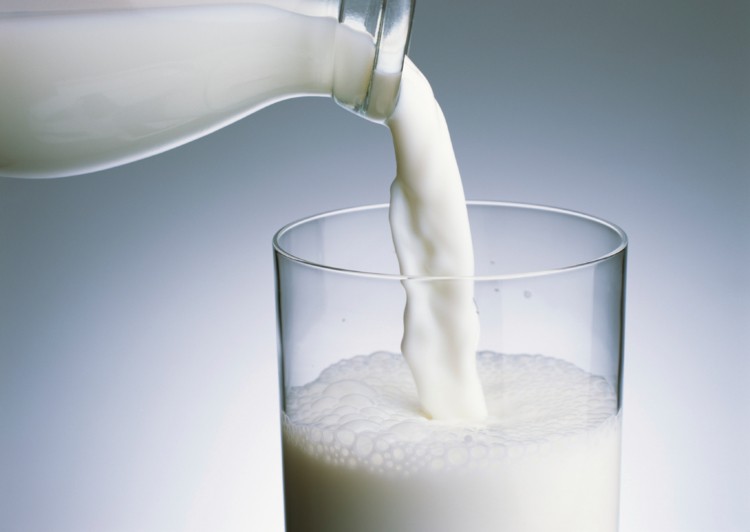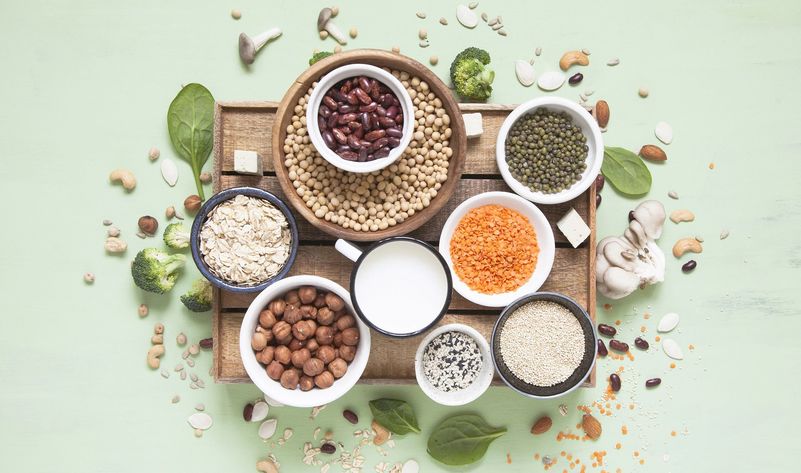The Ultimate Protein Powder Guide
We wanted to know what makes a great protein supplement and how to find it. We looked through the all-knowing world wide web for answers but couldn’t find all the information in one place. So, we decided to taken on the responsibility and put together the ultimate protein powder guide.
You could say we wrote this article for ourselves and all the like-minded individuals who want to know about the best protein powder. You might be surprised to know that the right supplement can vary depending on the goals of a person. There is no one-products-fits-all protein supplement on the market.
Starting With The Basics
What is Protein?

Before we jump into the ultimate protein powder guide and talk about which protein powder you should be taking, it’s better to know everything about the macronutrient in question. In this article, we’ll be going over why protein is important, what to look for in a supplement, types of powder and finally – some of our favorite products.
Protein is a molecule made from chemicals called amino acids. Our bodies need these amino acids to function properly as they help in carrying oxygen through the blood, boost the immune system and build muscle.
There are 20 different types of amino acids – nine of which the human body can’t produce naturally. These are called the essential amino acids (EAAs) and have to be taken through food. The other 11 types fall under the non-essential amino acid category.
How Much Protein Do You Need?

The daily protein requirement of a person can vary depending on their goals. The US Food and Nutrition Board’s current guidelines for the average adult is consuming 0.8g of protein per kg of body weight every day.
If you want to build muscle, you’ll need to bump-up the 0.8g goal. Some research suggests that you should be targeting 2.2-2.4 grams of protein per kg of bodyweight if you want to put on quality muscle mass.
Things To Look For Before Buying A Protein Supplement
The Macros
Once you get into the fitness lifestyle, you want to make reading the labels a habit before buying packaged food. Different protein powders have different macronutrient components, and you want to choose the one which fits in with your daily calorie and macro-intake goal.
While most protein powder supplements will have 20-25 grams of protein per serving, the carb and fat contents can vary widely. The fat contents in some containers will vary from 0-5 grams and the high carbs in some boxes can make the protein supplement work like a mass gainer.
If you’re on a muscle mass building program, you can opt for a supplement that has high protein and carb content and low fats. On the other hand, a high protein and low-to-no carbs and fats should be your go-to if you’re looking to improve your muscle conditioning.
Brand

Most people consider the brand before buying a protein supplement – which is a good thing. Each brand offers unique protein supplement products which are the result of proprietary formulas and a willingness to position itself distinctively in the highly-competitive market.
Since there is an abundance of options in the market, some people make the mistake of opting for cheaper supplement protein powders because the labels on the containers mention almost the same macronutrient quantity.
Nothing comes close to the adage “you get what you pay for” when it comes to sports nutrition supplements. Some brands use unethical methods like nitrogen spiking to boost the macronutrient content of their supplements and hide this foul practice under the ‘proprietary formula’ rug.
Sources

No two protein supplements are created equal. While the labels on two protein supplement containers of different brands might mention the same contents, the results you’ll get from these supplements can vary greatly.
Why is that, you ask? The ingredients used by brands in manufacturing these supplements make all the difference. Some brands prioritize their profit margins over the health of their customers and might cut corners on the ingredient quality.
Before buying a supplement, make sure you check the ingredient list and do a background check on the brand and its sourcing practices. You should also check if the supplement brand is getting a third-party quality testing done for its products.
Results

We take the protein supplements for building muscle, and that is why we spend our hard-earned money on them. Unlike most of the other supplement review articles, in the ultimate protein powder guide, we won’t tell you to consider the taste, after-taste or mixability of a protein supplement.
Brands love early-adopters and give out discounts and other promotional offers to lure-in the customers to try out their new products. We’ll recommend that you avoid being a guinea pig in the protein supplement world.
Look out for reviews and results on Google and YouTube of the product you’re going to buy. The Amazon review section is another great place to find out if the product does what it promises on the box.
Different Types of Proteins
There are three common forms of proteins which can be found in supplements –
- Protein Concentrates – Produced by extracting protein from whole food using heat and acid or enzymes. These typically supply 60–80% protein, with the remaining 20–40% composed of fat and carbs.
- Protein Isolates – After the concentration process, an additional filtering process removes more fat and carbs, further concentrating the protein. The isolate powders contain about 90–95% protein.
- Protein Hydrolysates – Produced by further heating with acid or enzymes that break the bonds between amino acids. Hydrolysates are absorbed the quickest by your body and muscles.
If you’re wondering what the different amounts of protein and fat percentages in protein concentrates, isolates, and hydrolysates signify – you’re not alone. All this information can be a little intimidating for the first-timer.
To sum it up, hydrolysates are the purest form of protein as they have the lowest fat and highest protein percentage. The hydrolysate protein can raise your insulin levels more than other forms. Higher insulin sensitivity can enhance your muscle growth if you take the supplement following exercise.
Animal Protein Powder

Although the animal protein is mostly made of milk, there are protein supplements on the market which are made from eggs and beef. In the ultimate protein powder guide, we’ll be covering the animal-based protein supplements that are the most researched, common and effective products on the market.
Whey Protein
Whey protein is the most common form of animal protein. It comes from milk and is the liquid that separates from the curds during the cheesemaking process. Whey is high in protein but contains lactose – a milk sugar that many people have difficulty digesting.
It’s not the end of the world for lactose-intolerant people. Although the whey protein concentrate retains some lactose, the isolate and hydrolysate contain close to zero because most of this milk sugar is lost during processing.
Whey is considered a complete protein – meaning it contains all 9 essential amino acids which the body can’t produce. Whey digests quickly and is rich in branched-chain amino acids (BCAAs). BCAAs are so effective in muscle recovery and growth that they are sold as a stand-alone product – more on this in a future article.
After you consume the protein, it’s broken down into amino acids which are then digested and absorbed into your bloodstream. The amino acids become available for muscle protein synthesis (MPS), or the creation of new muscle.
Editor’s Pick – Whey Protein Supplements
Casein Protein
Whey and casein are related. Think of it this way – casein is protein’s slower sister. Casein, like whey, is found in milk but is digested and absorbed much more slowly than whey. Casein forms a gel when it interacts with stomach acid, slowing down stomach emptying and delaying your bloodstream’s absorption of amino acids.
The slow absorption of amino acids results in a gradual, steadier exposure of your muscles to amino acids, reducing the rate of muscle protein breakdown. While whey protein is best taken right after a workout – due to its quick absorption properties, casein performs optimally when consumed before bedtime.
Casein can take up to six hours to completely digest and be utilized. The next time you’re leaving the house for hanging out with friends or family, gulp down a casein shake so you’re feeling full and don’t feast on junk food.
A research conducted by Baylor University, Texas showed that a combination of whey and casein supplements can help you fully maximize your fitness goals. The study discovered that consuming a whey and casein combination far out-performs a combination of whey, BCAAs, and glutamine supplements.
Editor’s Pick – Casein Protein Supplements
Egg Protein
Of all the whole foods, eggs have the highest protein digestibility-corrected amino acid score (PDCAAS). The PDCAAS score is a measure of a protein’s quality and digestibility. Although eggs are a staple in most omnivore diets, egg supplements haven’t made a mark in the fitness industry.
Eggs are one of the best protein-rich foods for helping decrease appetite and staying full for longer. The egg protein supplements lack the same effect as they are typically made from egg whites rather than whole eggs.
The egg protein has an abundance of BCAAs. It comes second only to whey as the highest source of leucine in a protein supplement. Egg-white protein supplements could be a great choice for lactose-intolerant people who prefer a supplement based on animal protein.
Editor’s Pick – Egg White Protein Supplements
Plant-Based Protein Powder

With growing veganism, plant-based proteins have become a hot-selling segment. Big brands have started manufacturing vegan protein supplements to cater to the demand from the plant-based athletes. But why turn vegan? Well, this is a different story for a different time but know this that recent research has proved that being on a plant-based diet can be better for your health than following a vegetarian or an omnivore diet.
Don’t believe us? Watch the documentary called ‘The Game Changers‘ on Netflix, Joe Rogan’s podcast on a vegan vs omnivore diet or read this book by Scott Jurek. Also, if you’re lactose intolerant or egg-allergic, you’ll have no other option but to rely on plant-based protein.
Pea Protein
Pea protein is arguably the most common type of plant-based protein. Its the whey protein of the plant-based supplements. It’s made from the yellow split pea, a high-fiber legume that boasts all but one of the essential amino acids. A protein supplement is also rich in BCAAs.
Research on rats shows that pea protein absorbs slower than whey protein but faster than casein. A pea protein supplement can trigger fullness hormones similar to that of dairy protein powders. Another research shows that in 12 weeks, people who took a pea protein supplement showed similar increases in muscle thickness as those who consumed the same amount of whey protein daily.
Pea proteins are incredibly effective in their muscle-building properties and other health benefits like faster and better absorption. The pea protein supplements show promise and deserve a place in the cupboard of serious lifters.
Editor’s Pick – Pea Protein Supplements
Mixed Plant Proteins
Mixed plant proteins are one of the most complex types of plant-based protein supplements. The mixed plant protein powders contain a blend of plant sources to provide your body with all the essential amino acids. Two or more of the following proteins are usually combined:
- Brown rice
- Pea
- Hemp
- Alfalfa
- Chia seeds
- Flax seeds
- Artichoke
- Quinoa
While there are many benefits of using a plant protein, there can be a minor problem for some people. Since the plant-based protein supplements have high fiber content, it can limit the amino acids your body can use immediately after exercise.
Editor’s Pick – Mixed Plant Protein Supplements
Brown Rice Protein
Brown rice protein supplements have been around for a while now. They are generally inferior to whey protein for building muscle. While rice protein contains all the essential amino acids, its too low in lysine to be a complete protein.
An eight-week study shows that taking 1.7 ounces (48 grams) of rice or whey protein daily results in similar changes in body composition, muscle strength, and recovery. More research is needed to prove the advantages of the brown rice protein over animal protein supplements.
Hemp Protein
After the pea protein supplements, hemp protein is gaining popularity in the vegan protein segment. Fun fact – hemp is related to marijuana but only contains trace amounts of the psychoactive component – THC.
Hemp is rich in several essential amino acids and omega-3 fatty acids. It’s not a complete protein because it has very low levels of the amino acids – lysine and leucine. Since hemp is a relatively new type of plant-based supplement, very little research exists on the well-digested protein source.
Although there are many plant-based protein supplements that include hemp and brown rice as ingredients, there aren’t any stand-alone supplements that we would recommend to our readers at the time of writing this article.




